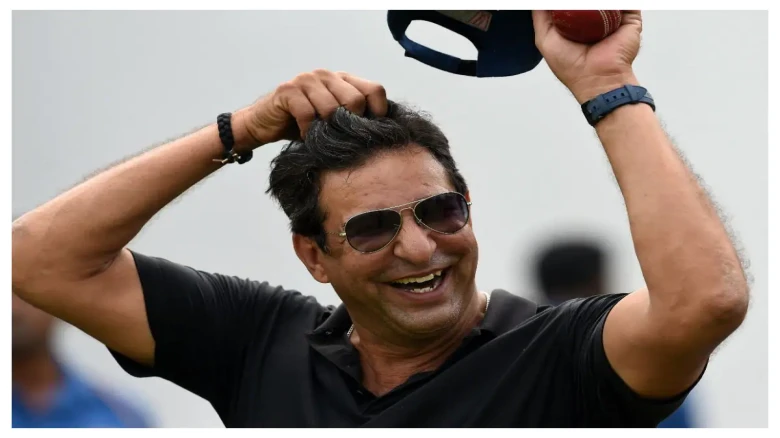The former cricketer said, "It started out innocently enough when I was offered a line at a party in England; my use grew increasingly more serious, to the point that I felt I required it to function.
Digital Desk: Former Pakistan captain and renowned fast bowler Wasim Akram has admitted that he became dependent on cocaine after his playing days were over but quit using it after the death of his first wife.
The 1992 World Cup champion, who amassed more than 900 international wickets before quitting cricket in 2003, started using cocaine while travelling the world as a television commentator.
The 56-year-old said that he has written about his addiction in his new autobiography in an interview with The Times.
"In South Asia, the culture of celebrity is all-consuming, alluring, and corrupting. You can attend ten parties in one night, and some people do. And I felt the effects of that, "The BBC cited Akram as saying.
The former left-arm pacer also spoke about Huma, his first wife, who died suddenly in 2009 from a rare fungal ailment, and her noble deed.
"Huma's final altruistic, unintentional deed was to help me overcome my drug abuse. That lifestyle was finished, and I haven't looked back since " he said.
Wasim played 104 Tests and 356 One-Day Internationals for Pakistan after making his international debut in 1984, winning the 1992 World Cup. He is recognised as one of the best bowlers of all time and captained Pakistan in 25 Tests and 109 ODIs between 1993 and 2000.
Akram claims that while he was travelling away from Huma and their two sons, who were residing in Manchester, he "developed a habit on cocaine."
The former cricketer said, "It started out innocently enough when I was offered a line at a party in England; my use grew increasingly more serious, to the point that I felt I required it to function.
"I am aware that Huma was frequently lonely during this time and frequently expressed a desire to go to Karachi in order to be closer to her family. I was opposed. Why? In part, because I enjoyed travelling alone to Karachi and feigning business while actually partying for days on end, “he added.
The legendary quickly sought help after his late wife learned of his drug use, but claimed to have had a negative experience in a Lahore rehab centre and relapsed during the 2009 Champions Trophy, for which he served as a pundit.
Akram claimed that the medications served as "a substitute for the adrenaline rush of competition, which I deeply missed," but his decision to stop came as a result of Huma's passing soon after the competition. Since then, he has been remarried, and he and his second wife have a little daughter.
In response to claims that he participated in match-fixing during his playing days, the former Pakistani cricketer reiterated his denial of any misconduct.
Saleem Malik and Ata-ur-Rehman, two Pakistani players, were suspended for match-fixing in 2000. Wasim was found not guilty of match-fixing, although Justice Malik Qayyum's investigation into the incident did propose that he be penalised and banned from leading Pakistan because of his refusal to cooperate and "cannot be considered to be above suspicion."
Wasim claims he did not read the study until he finished writing his book, despite the fact that it stated "there has been some evidence to cast doubt on his honesty."
"I understood my innocence. Wasim conveyed a message through someone else, according to all that he, she, and I heard. It's not even a good sound, " he stated.
Moreover, he said, "It's embarrassing because my kids have grown up and they ask questions.”

Leave A Comment